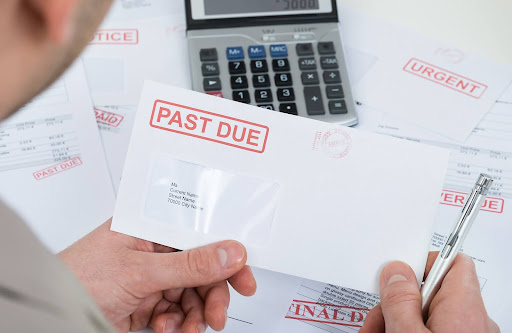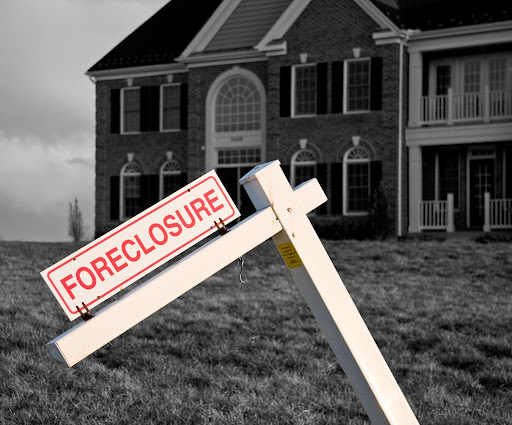
When homeowners don’t pay HOA fees, a whole mess of consequences can follow soon after—not just for the homeowners but also for the association. While the exact penalties can vary from community to community, they all generally fall under the same umbrella, posing challenges for delinquent members.
The Importance of Paying HOA Fees
Homeowners associations rely on regular fees or dues as their primary source of income. These associations use these fees to pay for various expenses, including but not limited to:
- Cleaning
- Maintenance and repairs
- Insurance
- Management fees
- Amenity upkeep
- Pest control
- Landscaping
Late HOA payments, therefore, have a domino effect on an association. When homeowners fail to pay their dues, it cuts off the constant stream of revenue that HOAs depend on. Funds would dry up, resulting in deferred maintenance and a lack of general upkeep. Soon enough, vendors will have to terminate their services altogether.
With the lack of maintenance, common areas would deteriorate, and amenities would fall into disrepair. Residents would no longer be able to use the facilities they once enjoyed. The poor upkeep would also lead to an overall decrease in curb appeal and, in turn, property values. Homeowners would not get a return on their investment, and potential buyers would be scared off.
Sure, association boards could turn to other sources of funds. Special assessments are one of them. However, if homeowners refuse to pay regular fees in the first place, they will likely refuse to pay special assessments.
Associations could seek financing from banks through loans, but these loans have to be paid back. Worse yet, they come with interest. When homeowners don’t pay their dues or assessments, finding the money to settle the HOA’s loan will be hard.
What Happens Don’t Pay HOA Fees in California?
Clearly, homeowners associations stand to suffer greatly from unpaid fees. This could even spell the end of an HOA completely. Residents would then have to suffer as their property values plummet.
However, diminished curb appeal and low property values are not the only consequences of unpaid fees. Homeowners also face potential implications from the HOA itself. Associations typically have an arsenal of collection strategies. There are a few possibilities depending on state laws and the HOA’s governing documents.
What happens if you don’t pay homeowners association fees? Let us count the penalties.
Late Fees
For most HOAs, the first course of action is typically to add a late fee or interest charge to the delinquent amount. In California, Civil Code Section 5650 grants this authority to homeowners associations.
The section states that fees turn delinquent 15 days after they become due. The exception to this rule is if an HOA’s governing documents allow longer periods.
The dollar amount depends on the association. However, California law states that late charges may not exceed 10% of the delinquent amount or $10, whichever is greater. An HOA’s CC&Rs, though, can specify a smaller amount.
Moreover, associations can only apply one late charge per assessment. After that, an HOA may charge an interest rate of 12% until the homeowner settles their debt.
It is important to remember that an HOA may only charge a late fee or interest when homeowners don’t pay HOA fees. Late fees and interest charges don’t apply to fines.
Do You Have to Pay HOA Late Fees?
The short answer is yes. The delinquent homeowner must settle both amounts if an HOA applies a late fee to an unpaid assessment. However, as stated above, an HOA may not charge a late fee on fines for violations.
Many homeowners want to know how to fight HOA late fees. While it is difficult to “fight” late fees, especially if an HOA is authorized to levy them and appropriately does so, a homeowner may attempt to negotiate with their HOA board.
Suspension of Privileges
Homeowners associations may also suspend a homeowner’s privileges for failing to settle their dues. Suspending privileges usually involves temporarily barring an owner from accessing common amenities or facilities.
However, an HOA may not suspend a homeowner’s access to elevators, lobbies, utilities, and trash collection services. Additionally, while an HOA can suspend an owner’s privilege to use a meeting facility for an unrelated HOA purpose, it may not bar an owner from using it to attend an HOA meeting or participate in elections. An HOA also can’t revoke a member’s voting rights.
An HOA in California must follow due process when suspending a member’s privileges due to unpaid fees. Moreover, the association’s CC&Rs must reflect the suspension of privileges as part of its published policy for collecting delinquent dues.
Collection Agency
An HOA may also hire a third party to collect the unpaid dues on its behalf. These third parties can include collection agencies, management companies, and lawyers. Associations typically need to pay a fee for this service, such as a flat fee or a percentage of the collected amount. The Fair Debt Collection Practices Act applies to collection agencies an HOA hires to collect delinquent amounts.
Lawsuits
When homeowners don’t pay HOA fees, an association may take legal action against them. Sometimes, a court may grant the HOA the ability to garnish the owner’s wages to settle the outstanding debt. The owner may even need to pay for the HOA’s legal fees. Results can vary on a case-to-case basis.
Liens
For most homeowners associations, collecting unpaid dues often involves attaching a lien to an owner’s property.
In California, before an HOA can record a lien for delinquent assessments, it must first notify the homeowner about the outstanding charges. This notice, which must be sent at least 30 days before recording the lien, must include details such as the collection and lien enforcement procedures, a breakdown of the charges owed, and options available to resolve the delinquency issue.
Additionally, the association must offer the homeowner an opportunity to resolve disputes through their “meet and confer” program upon request. Homeowners can also request a meeting with the board to discuss establishing a payment plan.
If the parties can’t agree to settle the outstanding dues, the HOA can proceed to record a lien on the property in the county records. Following this action, the association must mail a notice to all record owners within 10 calendar days of recording the lien.
The decision to record a lien for delinquent assessments rests solely with the HOA’s board of directors. This decision must be authorized by a majority vote of the board members during an open meeting, and the details of this vote must be documented in the meeting minutes.
Foreclosure

Can you be evicted for not paying HOA fees? In California, the short answer is yes. After 30 days from the lien’s recording, the HOA has the option to foreclose the lien either judicially or nonjudicially. Nonjudicial foreclosures are the more common, though.
California law imposes restrictions on the HOA’s foreclosure authority under certain conditions. Foreclosure by the HOA is prohibited unless:
- The outstanding amount exceeds $1,800, excluding accelerated assessments, late charges, collection fees, legal expenses, attorneys’ fees, or interest; or,
- The assessments guaranteed by the lien are overdue by more than 12 months.
Redemption Period
As per California Civil Code Section 5715, if the HOA conducts a nonjudicial foreclosure, a 90-day right of redemption applies following the sale. To redeem the property, the homeowner must settle all assessments, interest, attorneys’ fees, and potential repair costs.
The redemption period for judicial foreclosures is three months if the sale proceeds can cover the debt or one year if the sale proceeds can’t.
HOA Collection Policy Required in California
California mandates that HOAs establish and distribute their collection policies every year. This includes a statement detailing the association’s policies and procedures for enforcing lien rights or other legal measures in cases of default in fee payments.
While the statute requires a collection policy, it doesn’t specify penalties for non-compliance. An association lacking a collection policy would likely face legal challenges if it attempted to enforce late fees against delinquent members or foreclose on units.
Associations must disclose their policies and practices for enforcing lien rights and other legal remedies for collecting overdue fees, such as money judgments and suspending privileges. An HOA must provide this policy to members annually within 30 to 90 days before the start of the fiscal year.
The policy should include the association’s procedures for payment plans, late charges, interest imposition, and members’ dispute resolution rights, including internal and alternative dispute resolution.
What Can HOA Do If You Don’t Pay HOA Fees?
The repercussions of homeowners failing to pay HOA fees are extensive and far-reaching, affecting both the homeowners and the associations they belong to. Homeowners face penalties ranging from late payment fees and a suspension of privileges to third-party collections and legal action to liens and foreclosures.
Personalized Property Management offers expert management services to HOAs and condos in Southern California. Call us today at 760-325-9500 or email us at info@ppminternet.com to learn more!
